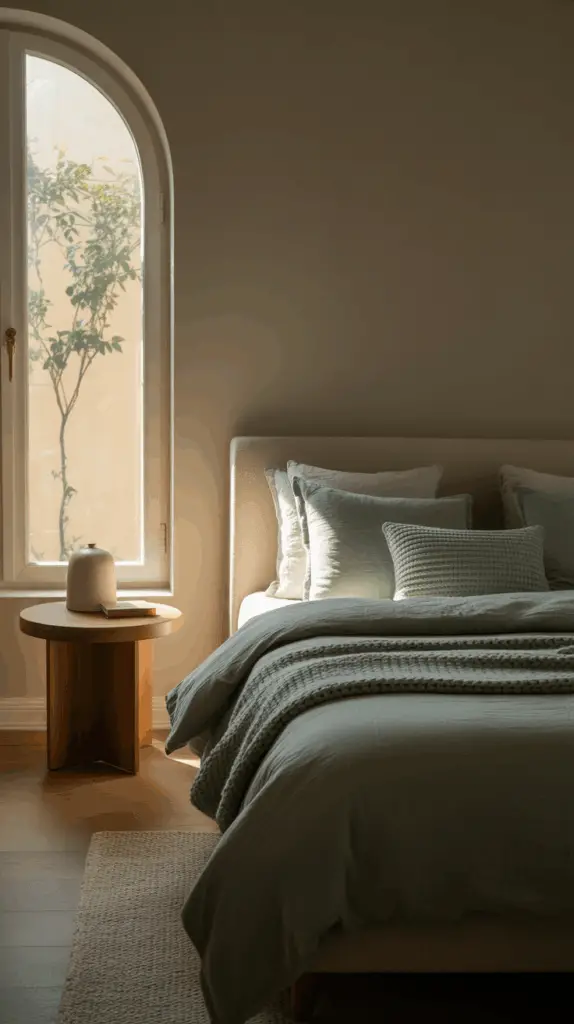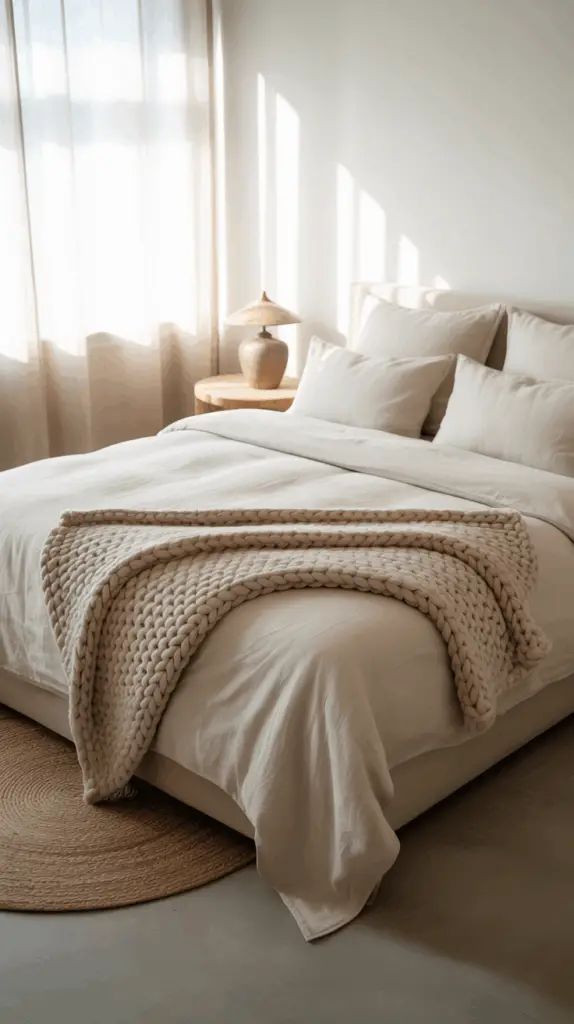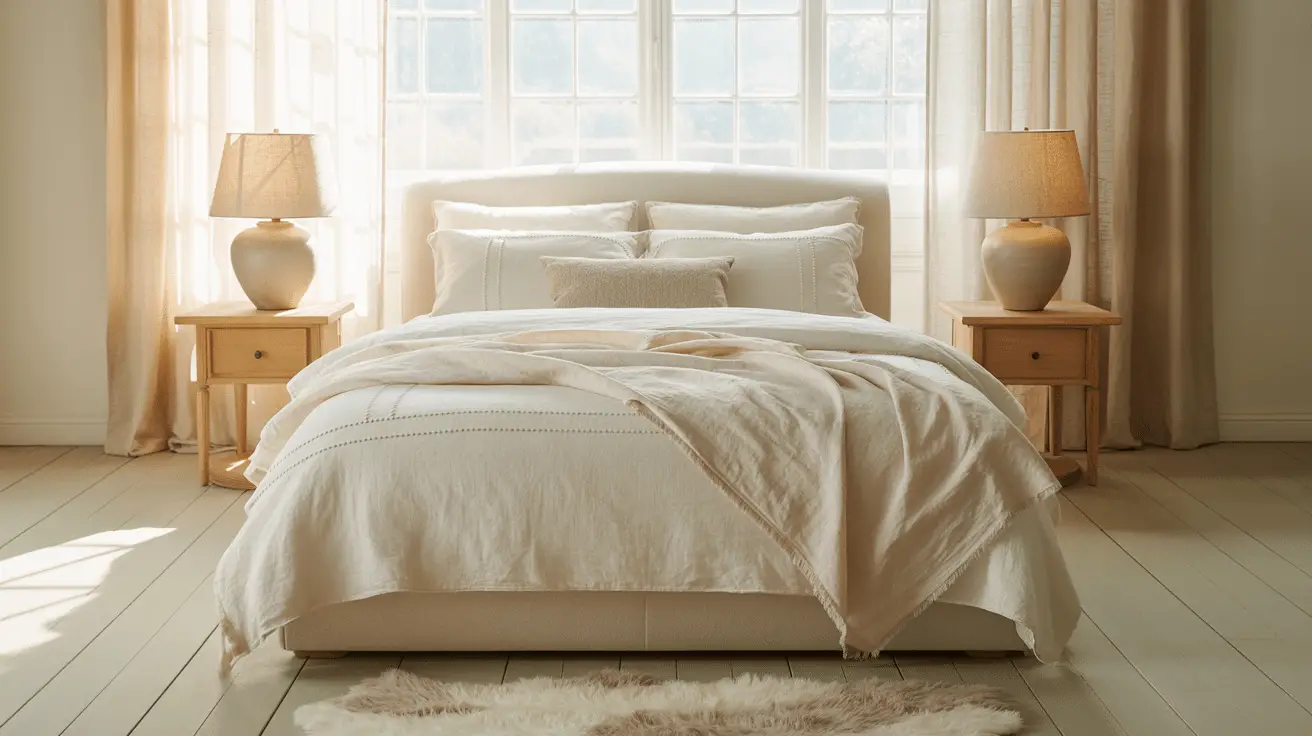5 Dreamy Bedroom Ideas for Serene Sleep Spaces That Inspire Rest and Relaxation
Table of Contents
Introduction:
Does your bedroom truly help you rest—or is it just a place where you sleep?
According to the National Sleep Foundation, a well-designed sleep environment plays a critical role in improving both sleep quality and mental health. In our fast-paced, always-on world, the bedroom has become more than just a sleeping area; it’s a personal retreat, a wellness space, a sanctuary for serenity.
But creating a tranquil and beautiful bedroom doesn’t have to mean a complete renovation. With thoughtful design choices, soothing aesthetics, and mindful touches, you can transform your bedroom into a dreamy haven that invites rest and relaxation every night.
In this article, we’ll explore five inspiring bedroom ideas that blend style and serenity. From calming color schemes to sensory layering and minimalism that doesn’t feel cold, these design strategies will help you craft a peaceful space where deep, restful sleep becomes the norm. Whether you’re starting from scratch or looking to refresh your existing setup, you’ll find ideas here that are both practical and indulgent.
Let’s dive into the world of serene sleep spaces.
1. Embrace a Soothing Color Palette for Instant Calm
The colors in your bedroom don’t just affect your mood—they influence your body’s ability to wind down and relax. Choosing a soft, muted palette sets the tone for tranquility from the moment you walk in. Think warm whites, dusty blues, sage greens, and barely-there blushes. These tones reflect light gently and avoid the stimulation of bold or saturated hues.
Psychologically, cool colors like blue and green are linked to lowered heart rates and reduced anxiety. Meanwhile, warm neutrals add a sense of grounded comfort without becoming visually overwhelming. When selecting your palette, stick to a maximum of three dominant colors to maintain cohesion.
Layering these tones throughout your bedding, walls, and curtains creates a harmonious look that supports deeper rest.
Color Mood Breakdown Table
| Color Family | Mood Created | Best Used On |
| Dusty Blue | Calm, airy, serene | Walls, accent pillows |
| Sage Green | Restorative, peaceful | Curtains, throws, plants |
| Soft Blush | Warm, gentle, romantic | Bed linens, wall art |
| Warm White | Clean, quiet, simple | Walls, bedding, furniture |

2. Layer Your Lighting for a Cozy, Restful Glow
Light sets the rhythm of your room. A serene bedroom uses a balance of lighting types to shift the atmosphere from day to night. Instead of relying on one harsh overhead light, layer soft light sources throughout the space.
Begin with ambient lighting—think dimmable ceiling fixtures or a soft-glow chandelier. Then add task lighting near the bed, like adjustable wall sconces or sculptural bedside lamps. Finally, accent lighting, such as under-bed LED strips or small table lanterns, can highlight textures and provide a cozy glow.
The goal is to allow flexibility. Use brighter lighting in the morning and warmer, low-light sources in the evening to cue your body toward sleep.
Bedroom Lighting Layer Guide
| Lighting Type | Purpose | Example Placement |
| Ambient | General illumination | Ceiling fixture, flush mount |
| Task | Reading, detail lighting | Bedside lamps, sconces |
| Accent | Mood-setting, highlighting | Under bed, behind headboard |

3. Choose Natural Textures to Promote Sensory Relaxation
The best serene sleep spaces are as pleasing to touch as they are to look at. Integrating natural textures—like linen, cotton, wool, rattan, and unfinished wood—adds sensory depth that calms the body and mind.
Textural layering helps your brain associate the bedroom with comfort. A chunky knit throw, a linen duvet, or a woven jute rug underfoot can all signal coziness. Even smooth textures like silk or bamboo can contribute to the feeling of luxury and restfulness.
Choose a mix of soft, matte, and tactile finishes. Avoid slick or cold materials like chrome or glass where possible.
Texture Layering Ideas for Bedrooms
| Texture Type | Sensory Effect | Where to Use It |
| Linen | Breezy, relaxed | Bedding, curtains |
| Wool | Warm, grounding | Throws, area rugs |
| Rattan/Wood | Organic, earthy | Furniture, wall accents |
| Cotton/Sateen | Soft, comforting | Pillowcases, blankets |

4. Declutter and Simplify with Intentional Minimalism
Minimalism isn’t about having less for the sake of it—it’s about curating only what truly contributes to your peace. In a serene bedroom, every object should serve a purpose: to comfort, to function, or to bring joy.
Start by eliminating visual noise. Remove unnecessary décor, store away clutter, and choose furniture with clean lines. Floating shelves can replace bulky storage, while under-bed bins keep essentials out of sight. Opt for closed storage where possible to maintain visual clarity.
This doesn’t mean your bedroom must feel cold or sterile. Combine minimalism with warmth through personal touches—like a favorite book on a nightstand or a single, calming piece of art above the bed.
Intentional Minimalism Checklist
| Element | Keep It If… | Storage Tip |
| Decorative Objects | It sparks calm or personal meaning | Rotate seasonally |
| Clothing & Accessories | You wear it regularly | Use under-bed bins, drawer dividers |
| Nightstand Items | You use it nightly or for relaxation | Tray or box to contain clutter |
5. Infuse Scent, Sound, and Ritual for Deeper Rest
The visual space is just one part of creating a dreamy bedroom. Engaging your senses with soothing rituals and sensory layers enhances relaxation and promotes better sleep quality.
Consider the role of scent: lavender, chamomile, and sandalwood are known for their calming effects. Use a diffuser, linen spray, or naturally-scented candles to create an aromatic bedtime atmosphere.
Sound also matters. Soft ambient sounds, like rainfall, white noise, or slow instrumental music, help signal your brain to unwind. Use a sound machine or app to create a consistent audio environment.
Finally, design your space to support nightly rituals: a journal beside the bed, a soft robe on a hook, or a warm cup of herbal tea on your nightstand. These cues tell your brain it’s time to shift into rest mode.
Sensory Layering Table
| Sense | Tool/Element | Benefit to Sleep |
| Scent | Diffuser, linen spray | Lowers stress, calms nerves |
| Sound | White noise, soft music | Blocks distractions |
| Ritual | Evening routine accessories | Trains body to wind down |
Conclusion
Creating a dreamy, serene bedroom is not about chasing trends—it’s about building a space that supports your well-being. Through soft color palettes, layered lighting, calming textures, minimalist design, and sensory rituals, your bedroom can become more than just a room—it can be your sanctuary for rest and renewal.
These five ideas are not prescriptive rules but gentle invitations to listen to what makes you feel at peace. Start small if you need to. Change a light bulb, swap out bedding, clear a surface. Every intentional step you take brings you closer to a sleep space that nurtures your body and mind night after night.

